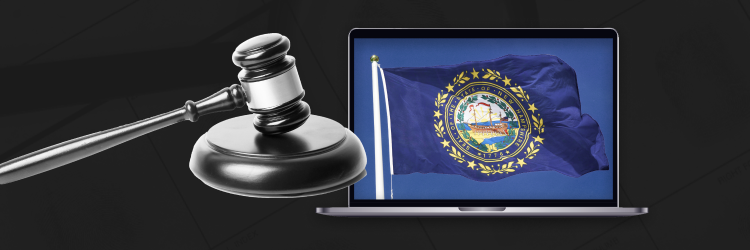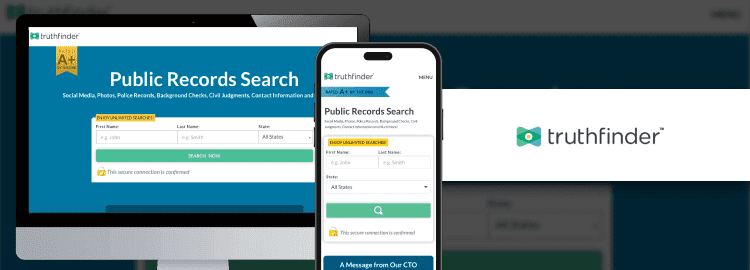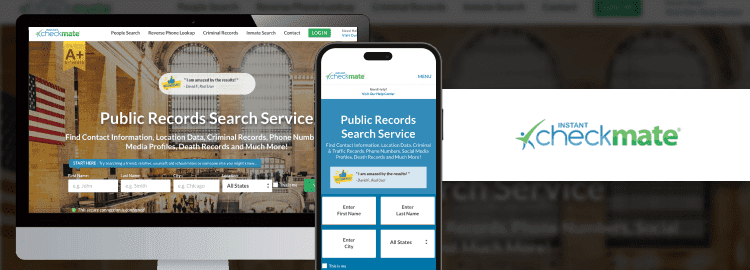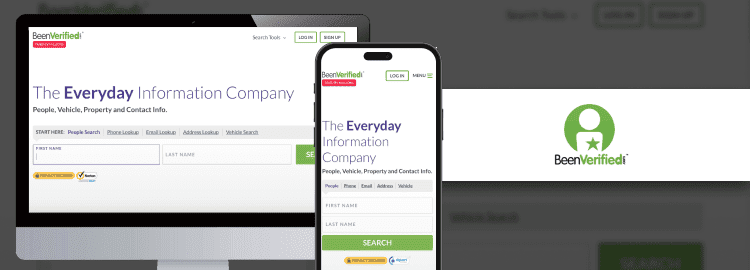A background check is a detailed look into personal, work, and criminal history. In New Hampshire, these checks benefit employers, landlords, and organizations to ensure they make good choices when hiring, renting out property, or accepting volunteers.
In this article, we will cover what you need to know about New Hampshire background checks. We’ll talk about how long these checks take, the laws that govern them, how to access state records and the background screening services available. Understanding New Hampshire laws is crucial when conducting background checks to ensure compliance and accuracy.
Need a Background Check?
What Are the Background Check Laws in New Hampshire?
Fair Credit Reporting Act (FCRA)
Federal laws provide comprehensive guidelines for conducting employment background checks, ensuring privacy and fairness. The Fair Credit Reporting Act (FCRA), enforced by the Federal Trade Commission, mandates that employers must notify applicants in writing before conducting background checks and obtain their written consent. If the background check reveals negative information, employers must follow an adverse action process before deciding not to hire the applicant.

Fair Chance to Compete for Jobs Act (FCA)
The Fair Chance to Compete for Jobs Act (FCA) specifically applies to federal contractors and agencies. It prohibits these entities from inquiring about an applicant’s criminal history until after extending a conditional job offer. This prevents discrimination against individuals with criminal records during the early stages of the hiring process.
Title VII of the Civil Rights Act of 1964
Title VII of the Civil Rights Act of 1964, enforced by the U.S. Equal Employment Opportunity Commission (EEOC), prohibits workplace discrimination based on protected characteristics of employees. This law advises employers to individually assess criminal records revealed in background checks in relation to the job duties.
Use of a Conviction for a Non-Annulled Crime
Under N.H. Rev. Stat. Ann. § 651:5(x)(c), individuals may petition the court to have certain convictions annulled. Once a conviction is annulled, consumer reporting agencies (CRAs) are not allowed to report it, and employers are prohibited from inquiring about it. Employers are only permitted to ask applicants if they have been arrested or convicted of a crime that has not been annulled.
Obsolete Criminal Information
New New Hampshire state laws also govern employment background checks. Under N.H. Rev. Stat. Ann. § 359-B:5, consumer reporting agencies (CRAs) cannot report information about an applicant’s arrests, convictions, or indictments if the dispositions occurred more than seven years before the date of the background check.
However, for positions with a salary of over $20,000 per year, employers can receive information on convictions older than seven years. Arrests not leading to convictions older than seven years cannot be reported.
New Hampshire Ban-the-Box Law for Public Employers
In 2020, New Hampshire passed House Bill 253, which prohibits public sector employers from asking about criminal history early in the application process. They can only inquire about criminal history after the applicant has had an interview opportunity.
Rehabilitation of Offenders Act 1974
The Rehabilitation of Offenders Act 1974 aims to help individuals with minor convictions reintegrate into society by ‘spent’ convictions, meaning they do not have to be disclosed to employers after a certain period. However, some exceptions exist, especially for roles involving vulnerable individuals, where full disclosure may be required.
Equality Act 2010
The Equality Act 2010 provides a legal framework to protect individuals from discrimination in the workplace. It prohibits discrimination based on protected characteristics, such as race, gender, disability, and age. During background checks, employers must ensure they are not discriminating against candidates based on these characteristics.
What Shows up on a New Hampshire Background Check?
Here’s an in-depth look at the common types of background checks and what they typically reveal:
Criminal Background Checks
A criminal background check in New Hampshire will provide detailed information about an individual’s criminal history record information. This includes any past convictions, pending charges, arrests, and, in some cases, non-conviction information. Employers use this information to assess if the individual has a history of behavior that could pose a risk in the workplace.
Employment Verification
Employment verification is a crucial component of conducting employment background checks in New Hampshire. This process involves confirming the accuracy of a candidate’s employment history as stated on their resume or job application.
Information typically verified includes previous employers, job titles, dates of employment, and reasons for leaving past jobs. This helps employers ensure that the candidate has the relevant experience and stability they claim to have.
Drug Testing
Drug testing is often included in the background check process for roles that demand high levels of trust and safety, such as positions in healthcare, transportation, and law enforcement. A standard drug test screens for illegal substances like marijuana, cocaine, opiates, methamphetamines, and PCP.
The results of these tests are crucial for employers to ensure a safe and productive work environment, free from the risks associated with substance abuse.
Education Verification
Education verification involves checking the academic credentials claimed by a candidate. This includes verifying degrees, majors, and the schools attended.
Accurate educational history is important for jobs that need specific qualifications or technical skills. Lying about educational achievements can cause big problems in job performance and trustworthiness.
Credit Background Checks
Credit background checks review a candidate’s financial history, which can be particularly important for positions involving financial responsibilities. These checks typically include information on credit score, debt levels, and any history of bankruptcies or defaults.
Driving Record Checks
Driving records are essential for roles that involve operating a vehicle, may it be for transportation, delivery, or company errands. These checks provide details about the candidate’s driving history, including any traffic violations, accidents, license suspensions, or DUIs. A clean driving record is crucial for ensuring safety and reliability on the road.
In addition to verifying the candidate’s ability to legally drive, driving record checks also help employers assess overall responsibility and adherence to laws. Frequent violations or serious offenses could indicate a pattern of risky behavior.
Civil Court Searches
Civil court searches reveal any non-criminal legal matters involving the candidate, such as lawsuits, restraining orders, or judgments. This information can help assess the candidate’s reliability and character. For example, a history of being sued for breaking a contract might be important for jobs that require high ethical standards.
How Far Back Does a Background Check Go in New Hampshire?
When it comes to background checks in New Hampshire, the timeframe for how far back a check can go is regulated by both state and federal laws, including the Fair Credit Reporting Act (FCRA). Under the FCRA, certain types of information have a lookback period of seven years for jobs that pay less than $75,000 per year. This includes:
- Arrests that did not lead to convictions
- Civil judgments
- Paid tax liens
- Accounts placed for collection
For positions that pay $75,000 or more annually, the seven years limitation does not apply, and background checks can potentially include information from beyond this period.
Additional considerations:
New Hampshire state laws also influence the extent of background checks. For instance, certain roles, particularly those involving vulnerable populations like children or the elderly, may require more extensive background checks, including a lifetime lookback period for specific offenses.
How Do I Get a State Background Check in New Hampshire?
Getting a state background check in New Hampshire involves several steps. Here’s a simple guide:
- Identify the Need: Determine why you need the background check. Are you an employer conducting employment background checks, or do you need a New New Hampshire background check for housing or volunteering?
- Gather Information: Collect all necessary details about the individual being checked, such as full name, date of birth, Social Security number, and any aliases.
- Complete the Request Form: Obtain the necessary forms from the New Hampshire State Police or your local law government agency office. Fill out the forms accurately to avoid delays.
- Obtain Authorization: If you are requesting a background check on someone else, you need their signed authorization to comply with legal requirements and protect their privacy rights.
- Submit Fingerprints: For certain checks, like those required for positions involving vulnerable populations, you may need to submit fingerprints at designated locations.
- Pay the Fees: Background checks usually require a fee. For example, a criminal history record check through the New Hampshire State Police costs $48.25, or $21.25 for volunteers. Fees vary based on the type of check.
- Submit Your Request: Once the forms are completed and fees paid, submit your request online, by mail, or in person at the designated office. Include all necessary documentation to avoid delays.
How Long Does a Background Check Take in New Hampshire?
The duration of background checks in New Hampshire can vary based on several factors, but typically they take around 5-10 business days. Here’s a breakdown of what influences the timeline:
- Scope of the Check: Comprehensive checks that include criminal history, employment verification, education verification, and reference checks can take longer.
- Completeness of Information Provided: If the candidate provides accurate and complete information, the process is usually faster.
- Response Times from Authorities: The speed at which relevant authorities and databases respond to requests for information can affect the overall turnaround time.
Typical timeframes:
- Criminal History Checks: Usually take 3-5 business days.
- Employment and Education Verification: This can take up to 10 business days depending on the responsiveness of past employers and educational institutions.
- Reference Checks: Typically completed within a week.
Employers often seek quick turnaround times for hiring decisions, so understanding these timelines can help in planning the recruitment process more effectively.
How Much Does a Background Check in New Hampshire Cost?
The cost of obtaining a background check in New Hampshire varies depending on the type of check and the provider. Here are some typical costs involved:
- Criminal History Record Checks: Conducted through the New Hampshire State Police, these checks typically cost $48.25 per check. For volunteers, the cost is reduced to $21.25.
- Child Care Personnel Background Checks: These checks involve a fee of $28.25.
- Fingerprint Services: In towns like Hanover, the fees are $30 for residents and $55 for non-residents.
- Private Background Check Services: Employers might pay around $25 per criminal records check, though prices can vary based on the provider and specific services requested.
Additional costs:
- State and Federal Background Checks: Some positions require both state and federal checks, which can increase the overall cost.
- Fair Credit Reporting Act (FCRA) Compliance: Employers must also consider any costs associated with complying with the FCRA, including ensuring that proper authorization is obtained and any adverse action notices are issued if needed.
Where To Get A Background Check In New Hampshire?
To get a background check in New Hampshire, you can visit the New Hampshire State Police for criminal history record requests and state database checks.
If you just need a basic search to check a friend or family member, a great option is to use online background check services. These sites provide information on a nationwide level and are really easy to use.
Best Background Check Services in New Hampshire
When looking to run background checks in New Hampshire, below are some trusted websites along with their pros and cons:
-
- TruthFinder – Best for comprehensive personal insights
- Instant Checkmate – Best for fast criminal checks
- BeenVerified – Best for detailed resume verification
TruthFinder is ideal for conducting detailed New Hampshire background checks. It offers insights into criminal records, contact information, and social media profiles. Employers and landlords benefit from its extensive database and clear reports, helping them make well-informed decisions. Star Rating / 5.0

Pros
Comprehensive personal insights
Extensive database
User-friendly interface
Cons
Compulsory monthly membership
Subscription costs can add up
Instant Checkmate is perfect for quick and accurate criminal background checks in New Hampshire. It provides detailed reports on arrests and convictions, ensuring employers spot potential red flags quickly. The platform is easy to use and delivers fast results. Star Rating / 5.0

Pros
Fast and efficient
Detailed criminal reports
Easy-to-use interface
Cons
Primarily focuses on criminal records
Subscription required for full access
BeenVerified excels in verifying resume information in New Hampshire. It confirms employment history, educational background, and professional licenses, making it invaluable for HR departments. The service ensures candidates are properly screened, providing reliable data in a user-friendly format. Star Rating / 5.0

Pros
Detailed resume verification
Reliable data
User-friendly reports
Cons
May need additional checks
Can be costly for extensive use
Conclusion on New Hampshire Background Check
Understanding New Hampshire background check laws is important for conducting thorough and compliant checks. These laws help ensure that background checks are performed fairly and legally, protecting both the requester and the individual being checked.
Using background check services is essential for verifying personal, professional, and criminal histories, aiding in informed decision-making. It’s important to approach background checks as a necessary step in promoting trust and safety within your community.
Recognizing the significance of these checks allows you to better protect your interests and contribute to a more secure environment.
Disclaimer: Some background check sites are just for personal use and conducting basic people searches. Others, such as those used by potential employers, must comply with the Fair Credit Reporting Act (FCRA). This law limits the types of information you can find on other people. If you’re an employer or landlord using a background check for professional purposes, be sure to choose a site that’s FCRA compliant. Using a people search site that doesn’t comply with the FCRA to screen potential tenants, domestic workers or employees is illegal.
The information available on our website may not be 100% accurate, complete, or up to date, so do not use it as a substitute for your own due diligence, especially if you have concerns about a person’s criminal history. The services we mention do not make any representation or warranty about the accuracy of the information available through our website or about the character or integrity of the person about whom you inquire. For more information, please review each service’s Terms of Use.
Choose a state to learn more



